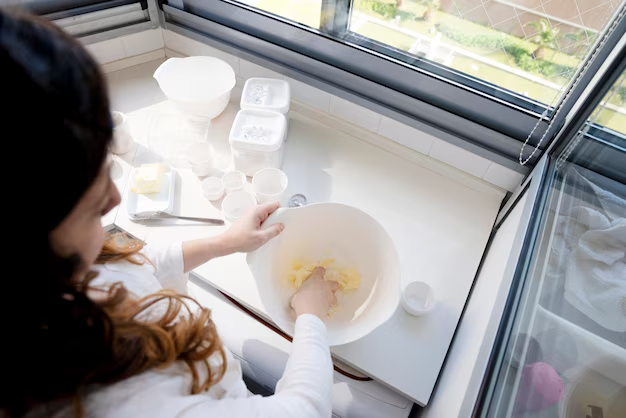The Shelf Life of Cooked Shrimp: How to Store It Safely in Your Refrigerator
If you've ever indulged in a delicious shrimp dish and ended up with leftovers, you might find yourself asking, "How long does cooked shrimp last in the refrigerator?" It's a common question with important implications for food safety and quality. Understanding how long shrimp stays fresh in your fridge can help prevent foodborne illnesses and ensure that you're enjoying the best-tasting shrimp possible. This guide will dive deep into the nuances of storing cooked shrimp, offer practical tips, and explore related topics that will empower you to make the best decisions in your kitchen.
📅 How Long Can Cooked Shrimp Be Refrigerated?
In most cases, cooked shrimp can be safely stored in the refrigerator for up to 3 to 4 days. This timeframe is considered optimal for maintaining the shrimp's taste and texture while minimizing the risk of bacterial growth. However, several factors can influence this duration, including how the shrimp was prepared and stored.
Factors Affecting Shrimp's Shelf Life:
- Preparation Method: Whether the shrimp was cooked with spices, oils, or sauces can affect how long it stays fresh. Heavier sauces might shorten its freshness time.
- Refrigerator Temperature: A consistent refrigerator temperature of 40°F (4°C) is crucial. Fluctuations can hasten spoilage.
- Storage Container: Airtight containers are best. They keep moisture and potential contaminants at bay.
Given these variables, it's essential to employ proper storage methods to maximize shrimp's freshness.
🥶 Storing Cooked Shrimp Properly
To ensure that cooked shrimp remains safe and tasty during its stay in your refrigerator, proper storage is key. Here are best practices:
Use Airtight Containers or Wraps
Storing your shrimp in airtight containers minimizes exposure to air, which can dry out the shrimp and adversely affect its texture. Alternatively, wrapping shrimp tightly in aluminum foil or plastic wrap is a good approach. Avoid leaving shrimp uncovered, as this can result in the absorption of other fridge odors and facilitate bacterial growth.
Refrigerate Promptly
Bacteria can grow rapidly at room temperature, so it's best to refrigerate shrimp as soon as possible after cooking. Ideally, the shrimp should be refrigerated within two hours of preparation. If you've had a particularly warm day or a prolonged serving period, consider shortening this time.
Label and Date
By marking your shrimp containers with the date they were cooked, you can easily keep track of their lifespan. This habit serves as a reminder and reduces the likelihood of consuming shrimp past its prime.
👃 Recognizing Spoilage
While timing is critical, being able to recognize signs of spoilage ensures you’re not eating potentially harmful shrimp. So, what should you look out for?
Common Signs of Spoilage:
- Off Odor: Cooked shrimp should have a mild ocean-like smell. A strong, sour, or ammonia-like odor often indicates spoilage.
- Change in Texture: If the shrimp feels slimy or mushy, it's a sign that it has gone bad.
- Discoloration: Fresh shrimp maintains its pink and white color. Any unusual grayness or spots may signal spoilage.
Always err on the side of caution and discard shrimp if you suspect it has spoiled. Consuming bad shrimp can result in food poisoning, leading to symptoms like nausea, vomiting, and diarrhea.
❄️ Can You Freeze Cooked Shrimp?
Yes, if you want to extend the shelf life further, freezing cooked shrimp is an excellent option. Properly frozen, it can last up to 2-3 months without a significant loss in quality. Here’s how to freeze it effectively:
- Cool the Shrimp: Ensure the shrimp is completely cooled to room temperature before freezing.
- Choose Freezer-Safe Containers: Use freezer bags or airtight containers designed for freezing. Removing as much air as possible will help preserve flavor and texture.
- Label the Package: As with refrigeration, labeling helps you track how long the shrimp has been stored.
🥘 Practical Uses for Leftover Shrimp
Having leftover shrimp opens the door to delicious culinary possibilities. Repurposing shrimp into meals not only prevents waste but also offers a delicious treat. Here are some ideas:
- Shrimp Tacos: Pair leftover shrimp with tortillas, fresh salsa, and avocados for a quick and easy meal.
- Pasta Dishes: Add shrimp to your favorite pasta, particularly those with creamy or garlic sauces.
- Shrimp Salad: Chop shrimp and toss it with salad greens, adding in elements like feta cheese and vinaigrette for a refreshing dish.
- Stir-Fries: Incorporate shrimp into a medley of vegetables and enjoy it over a bed of rice.
🔑 Key Takeaways: Storing Cooked Shrimp
🕒 Freshness Window: Keep cooked shrimp refrigerated for 3-4 days.
❄️ Freezing Options: Freeze shrimp for up to 3 months to extend shelf life.
🔍 Spoilage Indicators: Look out for off smells, slimy textures, and discoloration.
📦 Storage Best Practices: Use airtight containers; refrigerate promptly; label and date your food.
Staying informed about safe food storage practices can greatly reduce the risk of foodborne illnesses and improve the quality of your meals. By applying these practical tips, you can enjoy your shrimp dishes safely, knowing that they are both fresh and delicious.
In sum, knowing how to store your cooked shrimp can make all the difference between a delightful meal and a health hazard. With careful attention to storage techniques and spoilage signs, you can confidently navigate the world of seafood leftovers, savoring every bite with peace of mind.

